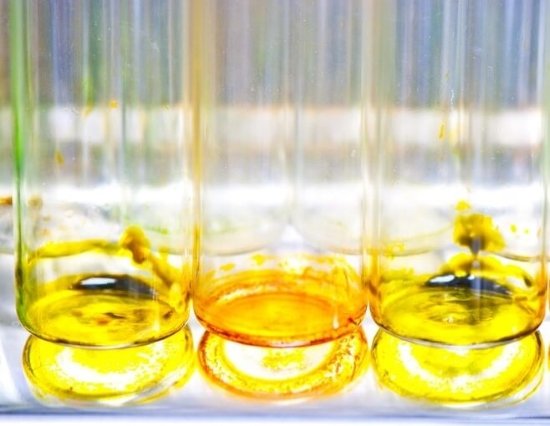Anti-HOXA3 (Polyclonal), ALEXA Fluor 594
Size
100 microliters
Catalog no.
GENTObs-11292R-A594
Price
489 EUR

Details
Subcellular locations
N/A
Gene ID
N/A
Swiss Prot
N/A
Modification site
None
Target Protein/Peptide
HOXA3
Applications
IF(IHC-P)
Excitation emission
590nm/617nm
Concentration
1ug per 1ul
Conjugated with
ALEXA FLUOR® 594
Conjugated
Alexa conjugate 1
Applications with corresponding dilutions
IF(IHC-P)(1:50-200)
Clonality
Polyclonal Antibody
Clone
Polyclonal Antibodies
Other name
Anti-HOXA3 Polyclonal
Purification method
Purified by Protein A.
Also known as
HOXA3 Polyclonal Antibody
Group
Polyclonals and antibodies
Type
Conjugated Primary Antibody
Conjugation
Alexa Fluor,ALEXA FLUOR® 594
Host organism
Rabbit (Oryctolagus cuniculus)
Properties
For facs or microscopy Alexa 1 conjugate.
Specificity
This antibody reacts specifically with HOXA3
Modification
No modification has been applied to this antibody
Antigen Source
KLH conjugated synthetic peptide derived from human HOXA3
Cross reactive species
Human (Homo sapiens), Mouse (Mus musculus), Rat (Rattus norvegicus)
Storage
Water buffered solution containing 100ug/ml BSA, 50% glycerol and 0.09% sodium azide. Store at 4°C for 12 months.
Description
This antibody needs to be stored at + 4°C in a fridge short term in a concentrated dilution. Freeze thaw will destroy a percentage in every cycle and should be avoided.
About
Polyclonals can be used for Western blot, immunohistochemistry on frozen slices or parrafin fixed tissues. The advantage is that there are more epitopes available in a polyclonal antiserum to detect the proteins than in monoclonal sera.
Cross Reactive Species details
No significant cross reactivity has been observed for this antibody for the tested species. However, note that due to limited knowledge it is impossible to predict with 100% guarantee that the antibody does not corss react with any other species.
Synonyms
Homeo box 1E; Homeo box A3; Homeobox 1E; Homeobox A3; Homeobox protein HOX A3; Homeobox protein Hox-1E; Homeobox protein Hox-A3; Homeobox protein HOXA3; Homeobox1E; HomeoboxA3; HOX 1; Hox 1.5 like protein; HOX 1E; HOX A3; HOX1; Hox1.5; Hox1.5 like protein; HOX1E; HOXA 3; HOXA3; HXA3_HUMAN; MGC10155.
Advisory
Avoid freeze/thaw cycles as they may denaturate the polypeptide chains of the antibody, thus reducing its reactivity, specificity and sensitivity. For antibodies that are in liquid form or reconstituted lyophilized antibodies small amounts could become entrapped on the seal or the walls of the tube. Prior to use briefly centrifuge the vial to gather all the solution on the bottom.
Background information
The Hox proteins play a role in development and cellular differentiation by regulating downstream target genes. Specifically, the Hox proteins direct DNA-protein and protein-protein interactions that assist in determining the morphologic features associated with the anterior-posterior body axis. The mammalian HOX gene complex consists of 39 genes that are located on four linkage groups, which are dispersed over four chromosomes. HOX genes that occupy the same relative position along the 5’ to 3’ coordinate (trans-paralogous genes) are more similar in sequence and expression pattern than adjacent HOX genes on the same chromosome. HoxA3, in conjunction with Pax1, mediates the development of the thymus, parathyroid gland, and carotid body. Its expression in the third pharyngeal arch and pouch is required for development of the third arch artery, and homozygous null HoxA3 mutants lack the carotid body. HoxA3 also regulates hindbrain development by controlling the axon projection pattern of motor neurons and sensory neurons of the proximal and distal ganglia.